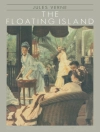In ‘Villa Rubein, and Other Stories, ‘ John Galsworthy masterfully weaves a tapestry of human experiences, grappling with themes of love, loss, and the complexities of social standing in the early 20th century. The collection exemplifies Galsworthy’s acute observations and finely honed prose, characterized by rich imagery and psychological depth. Set against the backdrop of an evolving societal landscape, the stories range from intimate portraits to broader societal critiques, showcasing his nuanced understanding of character and emotion within a changing world. John Galsworthy, an eminent English novelist and playwright, was deeply influenced by his own experiences and the societal challenges of his time. Born into a well-off family in 1867, he witnessed the disparities posed by class division, which informed much of his writing. His dedication to social reform and chronicling the human condition was recognized by the Nobel Prize in Literature in 1932, lending credibility to his exploration of moral dilemmas within ‘Villa Rubein.’ This collection is a testament to Galsworthy’s literary genius and is a must-read for anyone interested in early 20th-century literature. Readers will find themselves entranced by the intricate portrayals and timely themes that resonate even today, making it a relevant exploration of humanity’s enduring struggles.
Sobre o autor
John Galsworthy (1867-1933) was a renowned English novelist and playwright, best known for his literary contributions that often reflected upon the social strata and moral concerns of the early 20th century. Galsworthy’s works, characterised by a clear, undecorated style and a shrewd penetration of character, were influenced by his own class background and the changing society around him. Born in Kingston Hill, Surrey, to a wealthy and established family, he was educated at Harrow and Oxford, where he initially pursued a career in law before turning to writing as his lifelong vocation.
His collection ‘Villa Rubein, and Other Stories’ is indicative of his narrative prowess, encapsulating a range of human experiences and societal issues within its prose. Galsworthy’s nuanced character portraits are considered precursors to modernist literature, focusing on internal psychologies and social nuance. He was awarded the Nobel Prize in Literature in 1932, a testament to his impact on the literary world. Best remembered for his trilogy ‘The Forsyte Saga, ‘ his writings offer a window into the Edwardian and post-Victorian era that defined his social milieu and the core of his literary explorations.












